‘No one talks about this’: The plight of black people in the Middle East
David Swift and Michal Huss speak to two of the almost 200,000 black people living in Israel, where the implications of racism can be just as deadly as in the United States
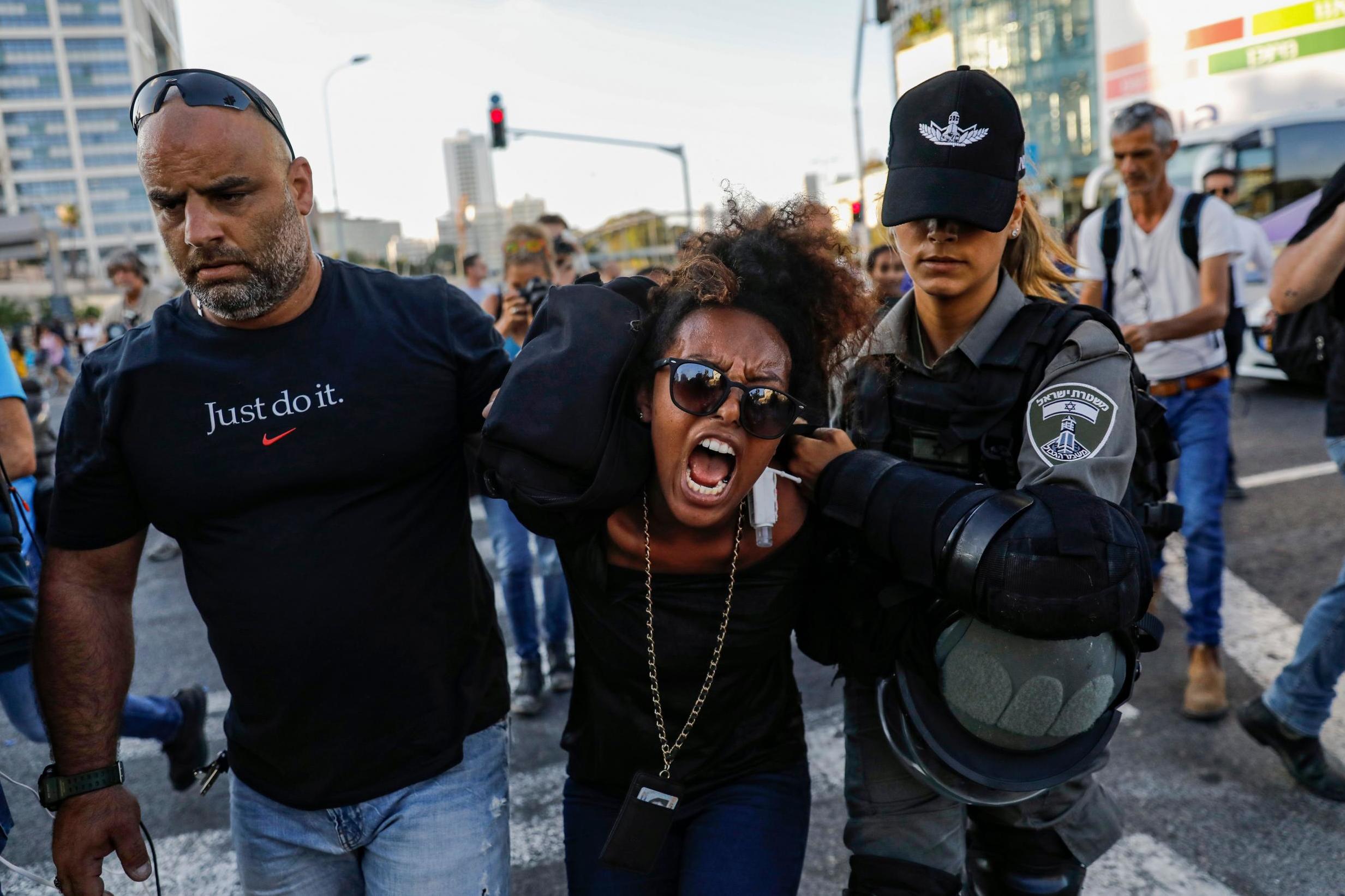
When Israel was brought into the global debate on anti-black racism, it was through a discussion of parallels between the treatment of African Americans and Palestinians, and very little consideration was given to the lives of the almost 200,000 black people within Israel itself. Race in Israel can be loaded with many of the same, often deadly, implications as in the United States: last month, a court acquitted two men, Israel Defence Forces soldier Yaakov Shimba and Israel Prisons Service officer Ronen Cohen, who in 2015 shot an Eritrean asylum seeker, Haftom Zarhum, believing him to be a terrorist. Zarhum was then badly beaten by a mob, and later died in hospital.
East African refugees like Zarhum began arriving in Israel via its border with Egypt in 2005, fleeing the civil war in Sudan or the totalitarian regime in Eritrea. Today it’s estimated that 23,140 Eritrean and 6,466 Sudanese citizens constitute 91 per cent of all asylum seekers in Israel. Their perilous passage involves crossing the Sinai desert, where Bedouins kidnap, torture and ransom Africans. According to the Hotline for Refugees and Migrants, 7,000 refugees are survivors of torture in the Sinai.
“When I arrived in 2008,” Taj Haroun, formerly head of the African Student’s Organisation in Israel, tells us from his office in south Tel Aviv, “Neve Sha’anan (the main area of settlement for African asylum seekers) was like the red light district of Amsterdam. I haven’t been there but that’s what I heard; a lot of prostitutes. When I arrived all the streets were like that. Today, this is a business hub. The house prices have gone up as well. So it’s become a very successful business hub for asylum seekers and Israelis, especially for the ones that own places. It’s a very good business, and they don’t want the asylum seekers to go. No one talks about this.”
Israel does not actively return refugees to their home countries, although a barrier completed in 2012 prevents further refugees arriving from Egypt. Those already in Israel remain in legal limbo, without settled status, work permits or access to healthcare. At the same time, politicians attempt to legally and culturally classify asylum seekers as illegal “infiltrators” or economic migrants.
This language infuriates refugees like Haroun. “If someone ran away from genocide, made a really difficult journey, made it into Israel, it is a very different story from someone who came to work here, send money home and go back home. Because no one here has a home to go back to. Some people went through hell in Sinai … when you come and sit with someone who went through hell, torture … You can’t tell that person ‘you come here to steal our jobs’.”
The streets of Neve Sha’anan are dotted with CCTV cameras, placed here in 2014 when the government started arresting refugees on the streets, to be sent to the Holot Detention Centre. Although the Holot facility closed in 2018, incitement against asylum seekers led by politicians and media continues, as do verbal and physical assaults on refugees, their businesses, homes and schools.
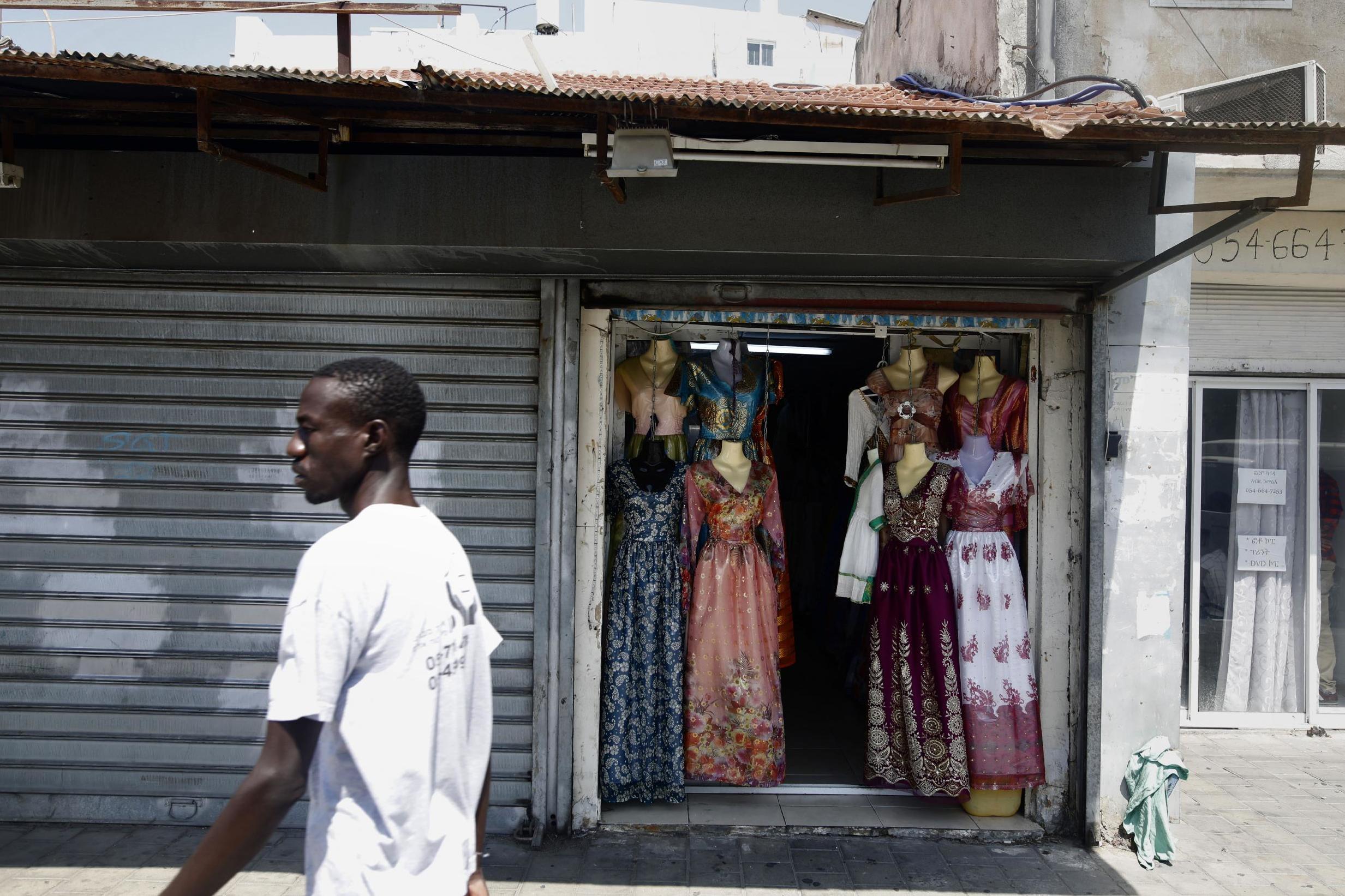
However, the refugees are not the only community in Israel to face anti-black racism. Israel is home to over 150,000 citizens of Ethiopian descent, who, in contrast to the asylum seekers, have full citizenship rights. The first generation of Ethiopian Israelis arrived during the Aliyah of the 1980s and ‘90s, when tens of thousands of Jews left Ethiopia for Israel. Today, there are 86,900 first-generation Ethiopians living in Israel, and a 64,900-strong Israeli-born second generation. Despite the ostensible welcome extended to the Ethiopian Jews, the settlement policies of successive governments led to residential concentration in poorer peripheral towns and neighbourhoods.
Efrat Yerday is chair of the Association of Ethiopian Jews, which has campaigned for Ethiopian rights since 1993. Her father was an early immigrant to Israel, arriving in 1970 and becoming an activist for the community. She says over the phone that “when the Ethiopians arrived in Israel the state treated them in a very patronising manner compared to other immigrants that are not from Africa. The Israeli ‘absorption’ policy directs Ethiopians to certain neighbourhoods, this is how ghettos were formed. Many of the first generation were forced to undergo ‘conversion’ in order to obtain legal status. All the problems Ethiopian Jews face today stems from the fact that the state questioned their Judaism in the first place.”
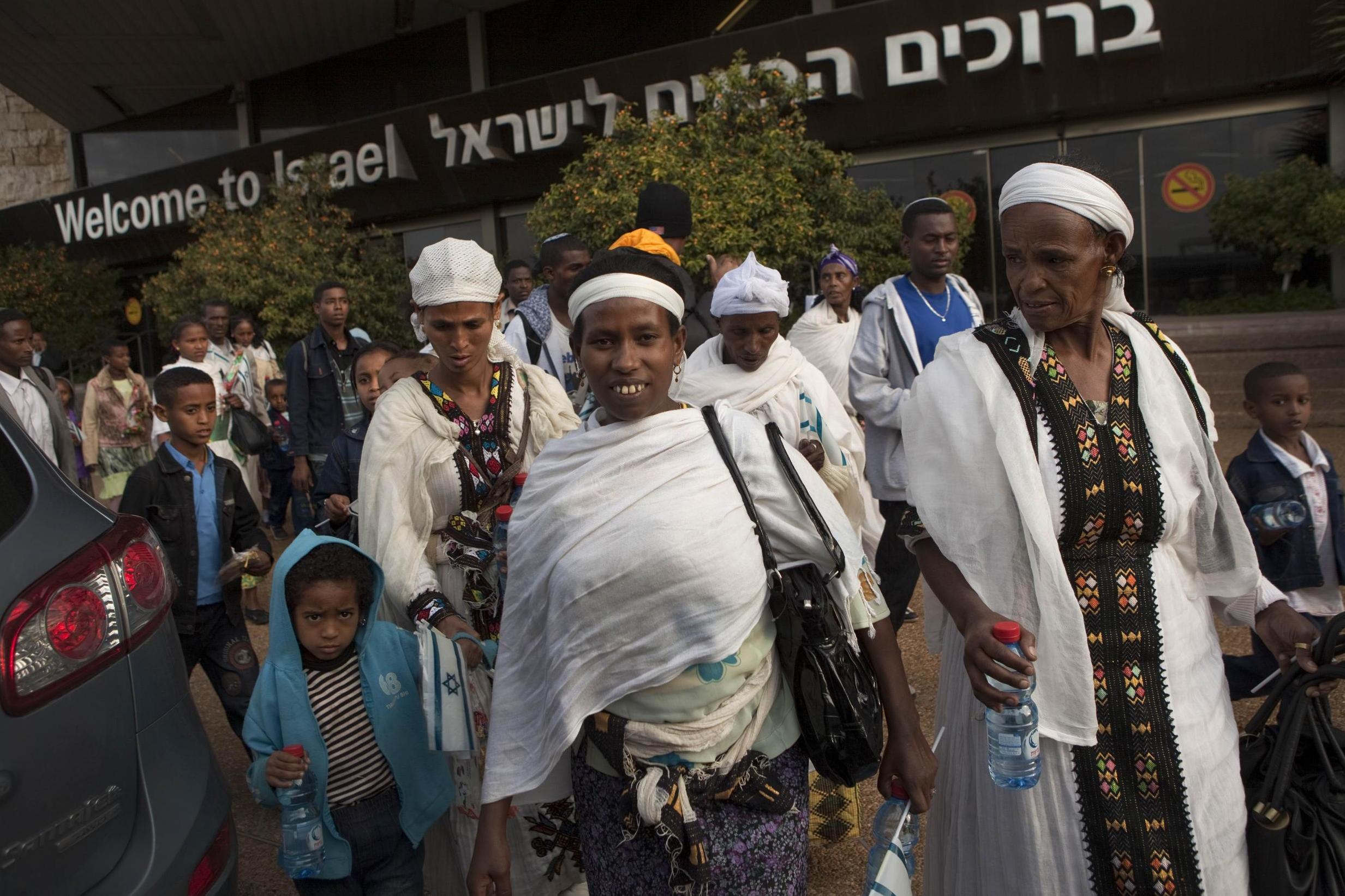
Yerday says that many Ethiopians have concerns about their underrepresentation in the public sector, corporations and local authorities, but in particular their harassment by the police. “It’s not so easy to get information from the police because first they will claim that they don’t have data on ethnic groups and second they will prefer not to share the information,” she says. ”But the data shows what we always knew: the percentage of arrests and charges against Ethiopians are unbelievably high comparing Israeli-Jewish society. There’s 20 per cent more chance of charges being filed against Ethiopian Israelis. We [were] almost twice more likely to be charged for police assault between 2015-2017 comparing to years before. That is the main charge filed by police officers who behave violently: when these kinds of cases of police violence arrive at court the officer will argue that there was an assault on the police.” According to the Association for Civil Rights in Israel, 6.6 per cent of Ethiopians have faced criminal prosecutions – for minors, it’s 14.3 per cent – and black minors are four times as likely to end up in jail as white Israelis.
No one here has a home to go back to. Some people went through hell in Sinai … when you come and sit with someone who went through hell, torture … You can’t tell that person ‘you come here to steal our jobs’
“The broader experience for Ethiopian men,” Yerday continues, “is you’re always under suspicion. Everywhere you go that is not your ghetto, that is not your neighbourhood, you are always under suspicion. If you go to white neighbourhoods you are going to be arrested or questioned by police officers. My young brothers, when they walk around, they would never walk around without ID. For white Israelis, this would never cross their minds, the obligation to always have ID. For me as a woman it’s different, I can be questioned sometimes in areas where I’m not fitting in, stereotypically. Sometimes a security guard might ask to hear me speak, to see if I can speak Hebrew and am Israeli, because they think I am not Israeli. But this only happens for black people, Arabs, people who look like Arabs, Arab Jews – it’s never happening in north Tel Aviv.”
After widespread demonstrations against police brutality in 2015, the Ministry of Justice formed a committee to research discrimination against Ethiopians, and the government recognised for the first time the existence of institutionalised racism against Ethiopians: “This was important,” says Yerday, “as previously people would downplay the extent of racism against Ethiopians, ‘you need to see what’s going on in America’ and so on.”
As in the United States, police violence against black people is becoming a more prominent issue. Yerday says it is “something that we deal with with a vengeance since 2015, following the death of Yosef Salamsa who was arrested by the police, and when his parents arrived at the station they found him lying on the floor outside the station handcuffed and badly beaten. A few months later he was found dead. Police during these months harassed the family and he became really depressed and the family does not believe this is a suicide case. Later on, a television programme found an audio of Salamsa in the police car screaming ‘my heart cannot breathe’.”
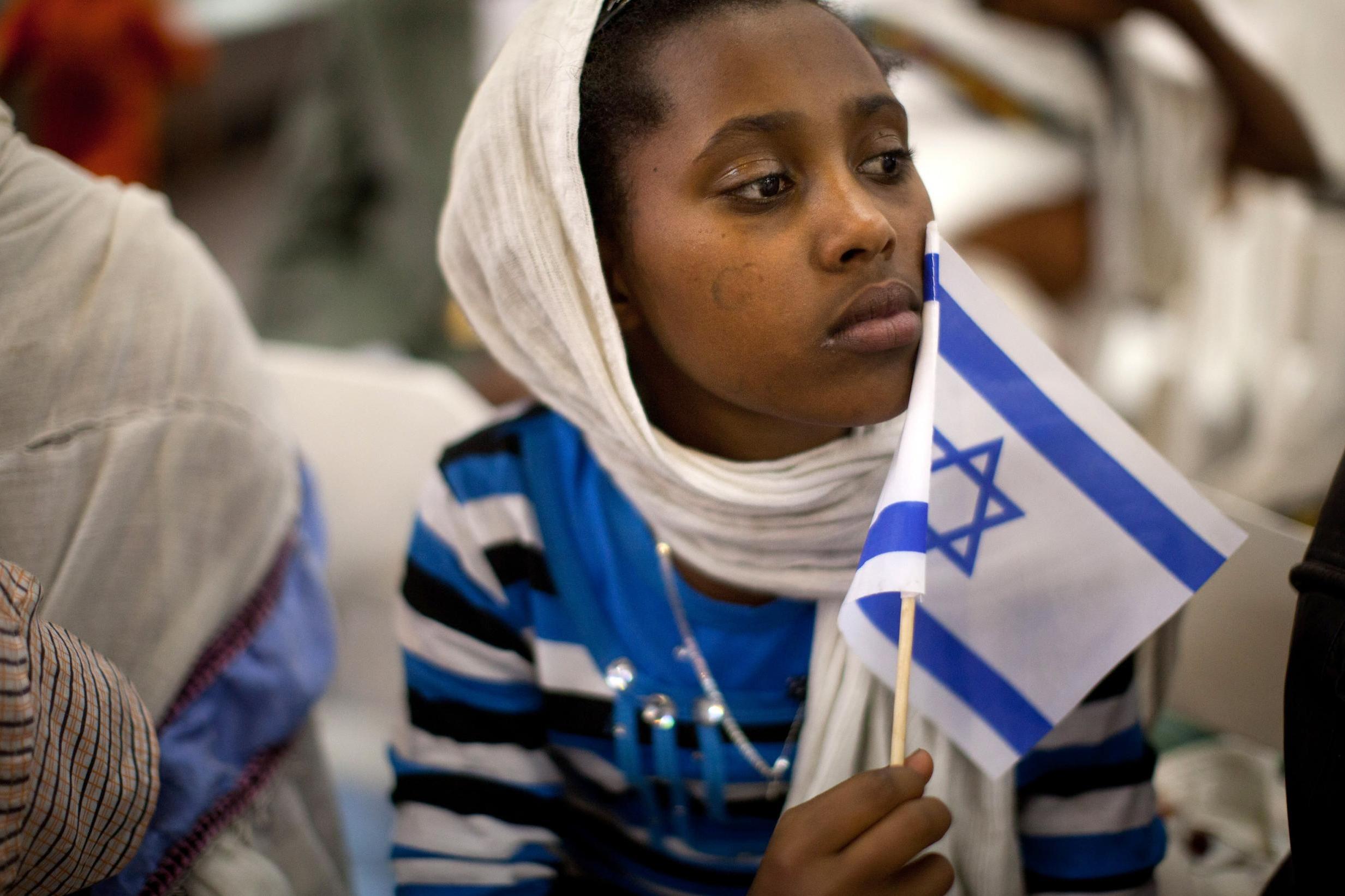
Salamsa became the symbol of a huge protest against police brutality in Tel Aviv in 2015 that was sparked by a clip of IDF soldier Damas Pakada being beaten by two police officers. “That’s when the penny dropped for the Ethiopian community, that even if you are a patriotic Israeli in uniform, it does not matter, your colour stays your colour,” explains Yerday. “Police joked about beating an Ethiopian guy in the town of Kiryat Malachi, and they have pictures on WhatsApp. One of them said: ‘Maybe I’ll get it framed so you can have it in your office.’ Two officers resigned, but not the chief of the police station, he actually was promoted to a higher office.”
In 2019 two Ethiopians were shot and killed by police: Yehuda Biadga in the town of Bat Yam and Solomon Teka in Haifa. “Time and time again we go and protest about these issues,” says Yerday. “Our organisation raises this in the public discourse and opposes the media delegitimisation that portrays Ethiopian protesters as violent and savages. We demand that the police recognise that there is racial profiling that they deny time and time again. We were also able to promote a pardon option for Ethiopian youths that have a criminal record that was really hampering the life chances of young Ethiopians.”
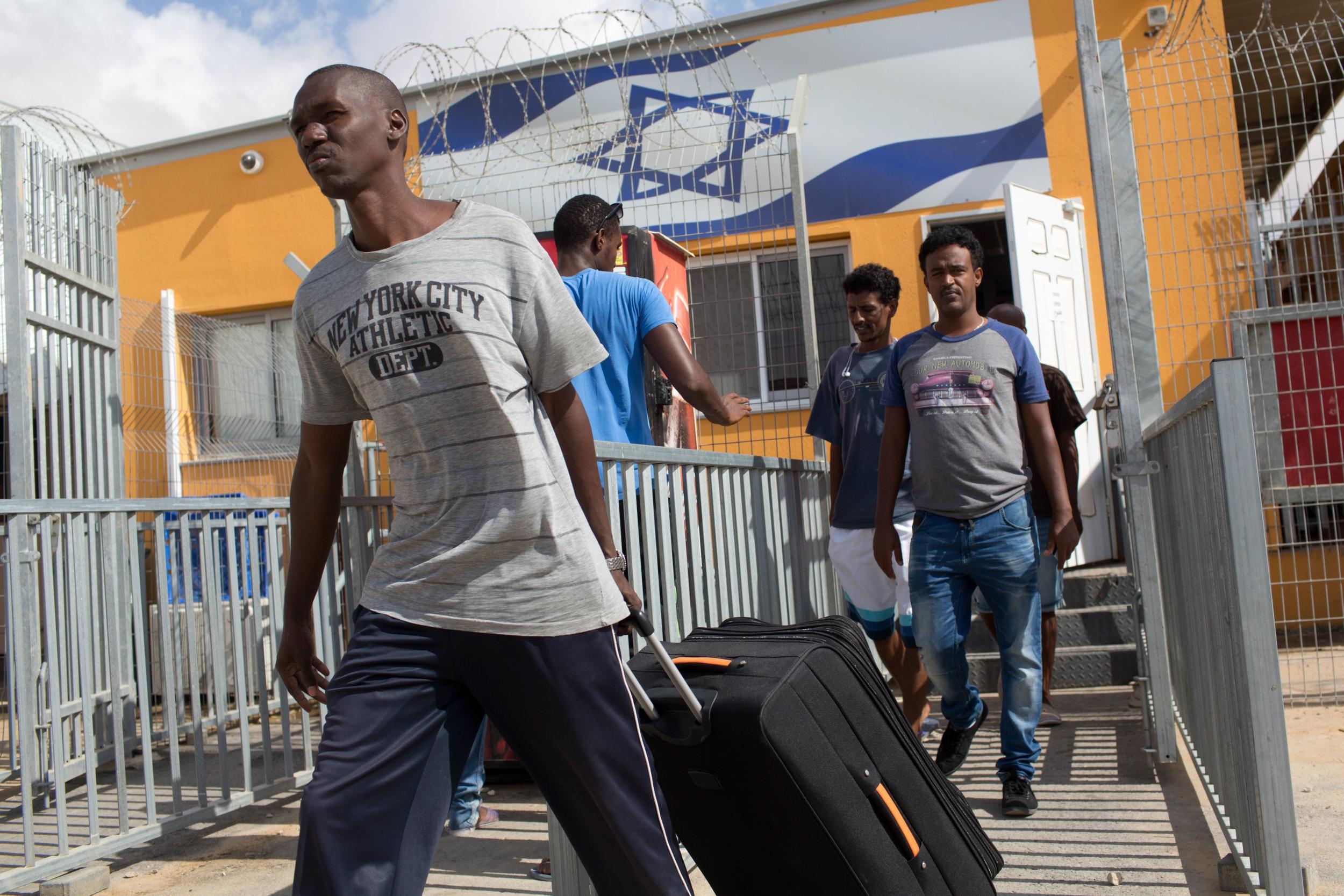
Aside from police brutality, Ethiopian Israelis’ main concern is with less obvious and institutionalised forms of racism. Hostility towards asylum seekers, however, is more socially acceptable and blatant. Elements of the media and politicians of varying hues have referred to refugees as a “cancer in our body”, ”carriers of disease”, “rapists” and “criminals”. Following the flooding of a refugee neighbourhood in January 2019 – which resulted in the destruction of homes and the death of a young Jewish Israeli couple – the Labour mayor of Tel Aviv, Ron Huldai, said that the problem was not “drainage and infrastructure”, but rather that the southern neighbourhoods suffer from a more serious issue of “infiltrators”.
Me personally, I’m afraid that we’re going to this place because I think the state of Israel managed to arrive to a very bad place in a short time, because in America it took 400 years, and so I’m afraid that it’s happening very quickly here
Nonetheless, Haroun’s opinions on the Israeli government are ambivalent: “I remember someone said to me, ‘why are you grateful for the very challenging life you have?’ I said to him, ‘look, I know that I have a very difficult life but if I were in Darfur now I would either be dead or in jail or fighting to survive’. So I’m grateful for the fact that I am alive here even though there are so many challenges … we know what we face at home, and it’s not from Israel, it is from our own government. So it’s not like Israel is coming bombing on us and that they do not accept us. No, it is coming from our own government. So we ran to survive and Israel welcomed us. It did not give us status but the fact that they let you inside is a huge thing because they could have said, ‘no, push them back to the border’.”
In contrast to the political discourse around asylum seekers, when it comes to Ethiopians, politicians emphasise a positive story of Israeli humanitarianism. “It’s a story that the state of Israel always promotes, but in the last few years we hear other stories” promoted by activists such as herself, says Yerday. These stories focus on people who were not “quiet and humble”, grateful to be rescued, but instead were aware of their rights and proud of their culture. Yet Yerday complains that children often believe the state’s narrative, and the young don’t know their own history. “I think it’s damaging to their self-esteem, that they are always being told the official state version. It’s very common that Israelis demand that Ethiopians be thankful to the state for taking us in. In 2011, the minister of absorption told me I need to say thank you!” Attitudes like this fuel the determination that her community be recognised as full and legitimate citizens of Israel, to be treated with equal dignity.
Similarly, although Haroun feels an obligation to help his community and improve relations between Israelis and asylum seekers, it takes an emotional toll. “I do not enjoy it,” he says, “especially when I have to explain about my situation. It’s hard because you have to tell a story that is difficult, you almost lost your life and you have to repeat it again and again. That’s a really difficult part … But at the same time you have the responsibility as a community leader. As an activist you are trying to change the reality.” Despite his negative experiences with the government, he retains a strong sense that ordinary Israelis sympathise with refugees, at least when they hear their stories. “I am an asylum seeker from Darfur. I was born in a small village. I did not see a big city until I was 12, and when I tell them my story about how I am studying at Tel Aviv University, they say, ‘wow’. Sometimes it’s about showing your normal side, that you’re a human being.”
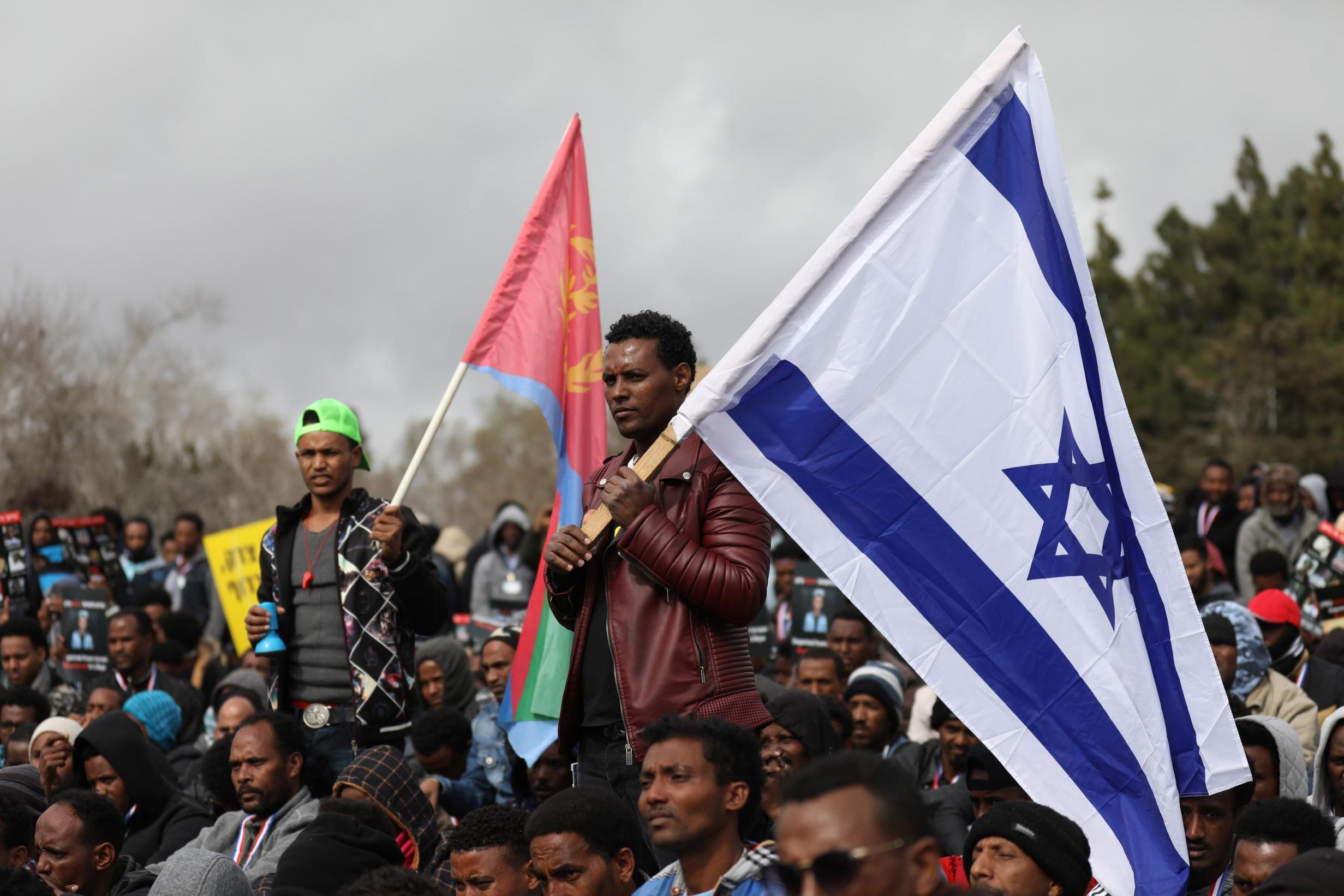
Haroun explains how two Israelis who heard him speak at their school went on to lead a campaign at their university against the government’s planned deportation of asylum seekers to a third country in 2017. Mass protests and legal challenges forced the government to back down, and in these incidents, Haroun can see the fruits of his activism. “It makes a huge impact. And it could go from an individual to the family and the society around them … That’s why when we had these demonstrations in 2017, thousands of people came. It’s the first time that we felt like Israeli society is completely different than the government.”
Israelis who campaign for refugee rights often argue that their country has a special obligation to help asylum seekers due to their own experience as a refuge for Jews during and after the Holocaust. On a demonstration in 2010, some asylum seekers wore a yellow Star of David to deliberately invoke this memory. “A lot of people immediately relate [the refugees’ situation] to the Holocaust,” says Haroun. “Even if they don’t say, you can understand from the reaction. You can sometimes even hear from their questions … The man supporting this organisation, we have him as a main donor that is like a father. He got involved when we took him on a tour of Neve Sha’anan. He said: ‘Look, my mum and my dad were refugees for six years, they went to five countries until they arrived in New York where I was born and I promised myself that when I have the opportunity to help someone who is in the same situation as my parents went through, I will do.’”
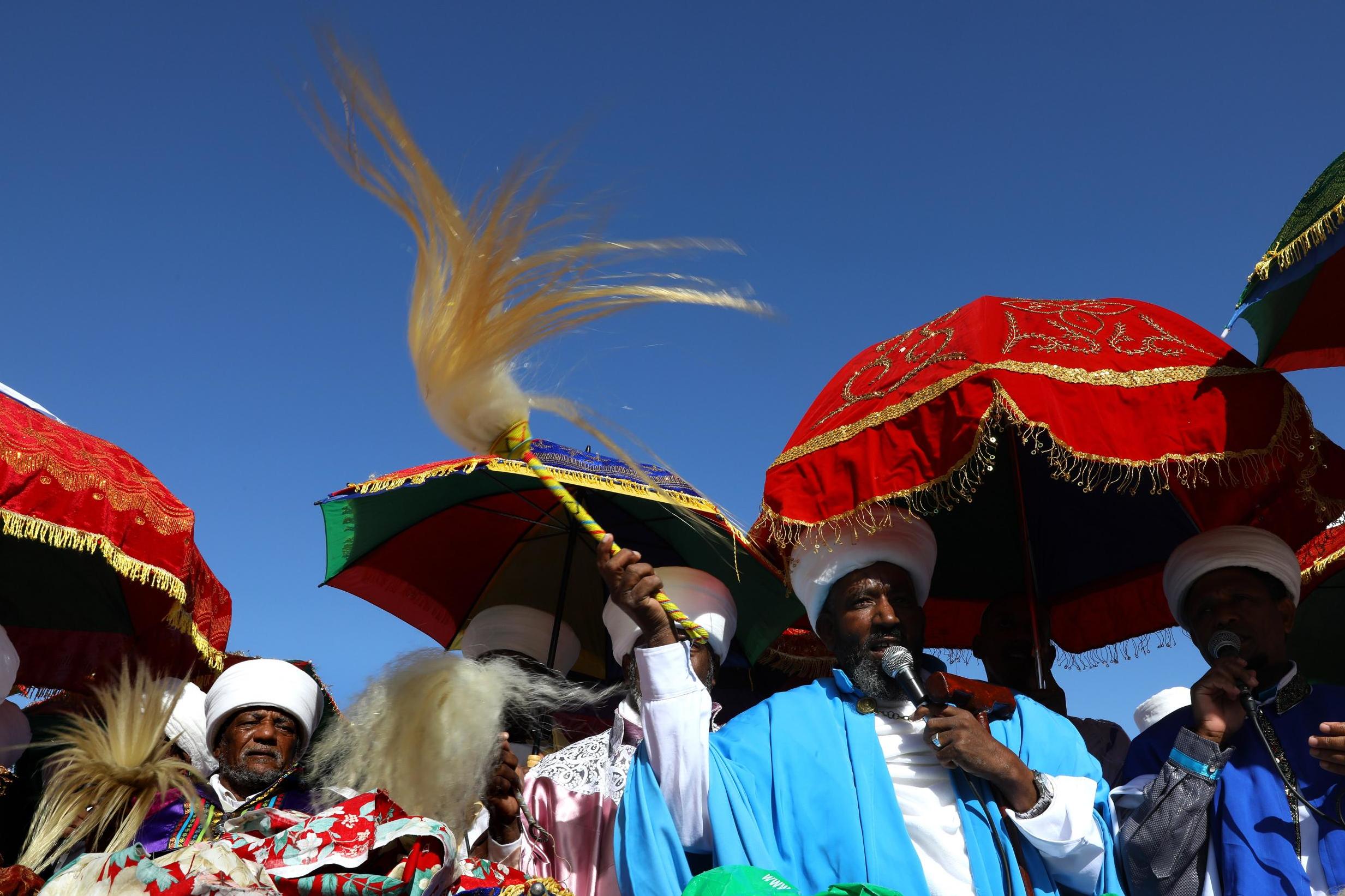
Many westerners, although sympathetic to the refugee cause, tend to see the plight of asylum seekers as part of the broader Israel-Palestinian conflict. “I remember once we had a group from the States,” says Haroun. “They came and asked us to meet them in south Tel Aviv and most of them were very pro-Palestinians and against Israel. They tried to connect us to the Palestinian issue, and we were like, ‘no, we are asylum seekers, our issue is completely different’. Palestinians have their own issues, it is complicated and we don’t want to get into that. They think you are a minority. Likewise, with the Ethiopian Jews, people say, ‘you are African, they are African, you should work together’. No. Those people are Jewish, they have the right to be here.”
Despite their identical legal status to white Israelis, Yerday draws parallels between violence towards Palestinians and asylum seekers and racism towards Ethiopians. “Israeli society is going through a process of getting more violent and I think it’s all connected,” she says. “The more an institution is violent and corrupt, the more racism you will see there. Do you think that if this happened to an Ashkenazi guy this would have been the response? For me, the answer is very clear. It could happen to my brother. You can’t say: ‘No, no, no, we are racist only to the Eritreans and Sudanese.’ It doesn’t work like that. It’s impossible, because when I’m going to these neighbourhoods I’m Eritrean, I’m Sudanese.”
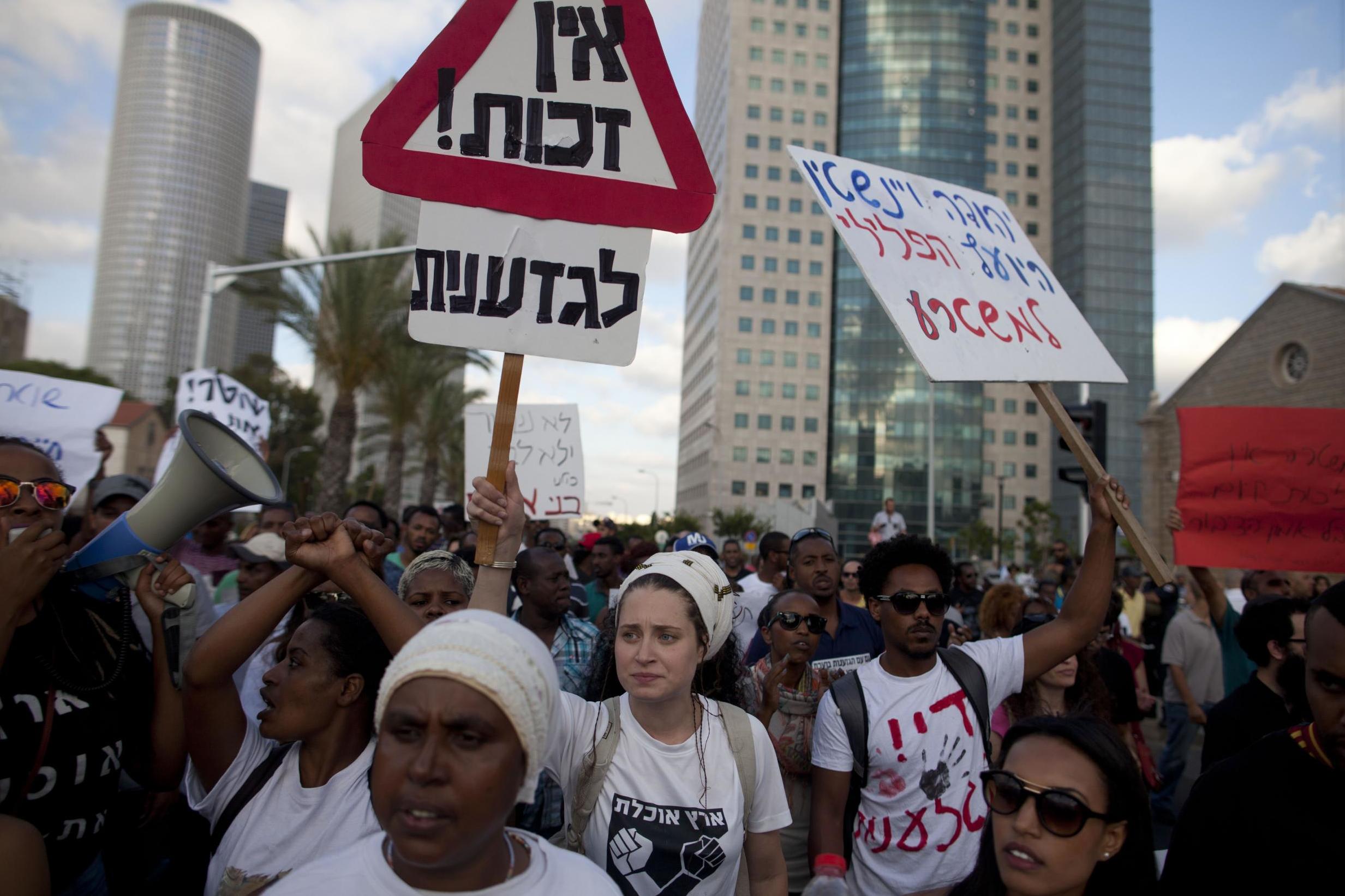
Nonetheless, this shared susceptibility to police shootings has not brought joint campaigns from the two groups. Until recently in Israeli history, different activist groups have worked separately and towards different ends, with little solidarity between labour unions, student movements, Ethiopian Jews, and asylum seekers. The coronavirus, and the government’s handling of the crisis, has led to furious protests against prime minister Benjamin Netanyahu, which have drawn on a much broader cross-section of society than typical anti-government rallies. Nonetheless, Yerday does not hold much hope that these shared experiences, or increased sympathy among Ethiopians for refugees, will act to spur collective action. “At the end of the day, different groups struggle for their rights by themselves. In the last few years, it’s been changing but it’s still on the margins. You always get delegitimised if you cooperate with the left wing, asylum seekers, Arabs, and you get criticism from both sides, from your community, from the general community.”
Although there are many parallels between the situation of black people in Israel and in Britain and the US, race and class interact with politics in different ways. Generally speaking, Arab Jews and immigrants from the former Soviet Union tend to support right-wing parties such as Netanyahu’s Likud, which Ethiopians have historically supported, although this may be changing. “For the first generation,” says Yerday. “Because of Menachem Begin, who was the first one to take active steps for the Aliyah, and during his time the community started to arrive in Israel, this is something the first generation remember.” Nonetheless, the young generation of Ethiopians is much more varied in its politics, and more inclined to connect their own experiences with black people elsewhere in the world.
“The experience of black people in white societies, it feels the same, although the histories, the infrastructures of oppression, are different. The way the police work, it’s the same system that protects the police, without regards to their work, and whether they’re doing a good job,” says Yerday. ”In 2015, when the demonstrations took place, it was the same time as the demonstrations in Ferguson, and this is what people were saying: ‘This is not America, you can’t behave here like that.’ Me personally, I’m afraid that we’re going to this place, because I think the state of Israel managed to arrive to a very bad place in a short time, because in America it took 400 years, and so I’m afraid that it’s happening very quickly here.”
These are just two voices among tens of thousands of black people in Israel, but provide a glimpse into the complexity of the black experience in a country usually perceived through the narrow binary of the Israel-Palestine conflict. For asylum seekers, the current situation is precarious: even children born in Israel do not gain a legal right to remain and their future remains uncertain. For Ethiopians like Yerday, the situation is different, but they still feel a lack of acceptance. “A year ago there was a headline that police officers will travel to Ethiopia, in order to learn the culture of Ethiopians. Can you imagine? You need to travel to Ethiopia to learn the culture of Ethiopians? They talk about ‘cultural sensitivity’, but it’s not about culture, it’s about racism, violence and lies. This is the problem. You don’t need to learn about Ethiopian culture, because I’m Israeli, and most of the youth that are being arrested are raised and born in Israel.”
Join our commenting forum
Join thought-provoking conversations, follow other Independent readers and see their replies
Comments
Bookmark popover
Removed from bookmarks